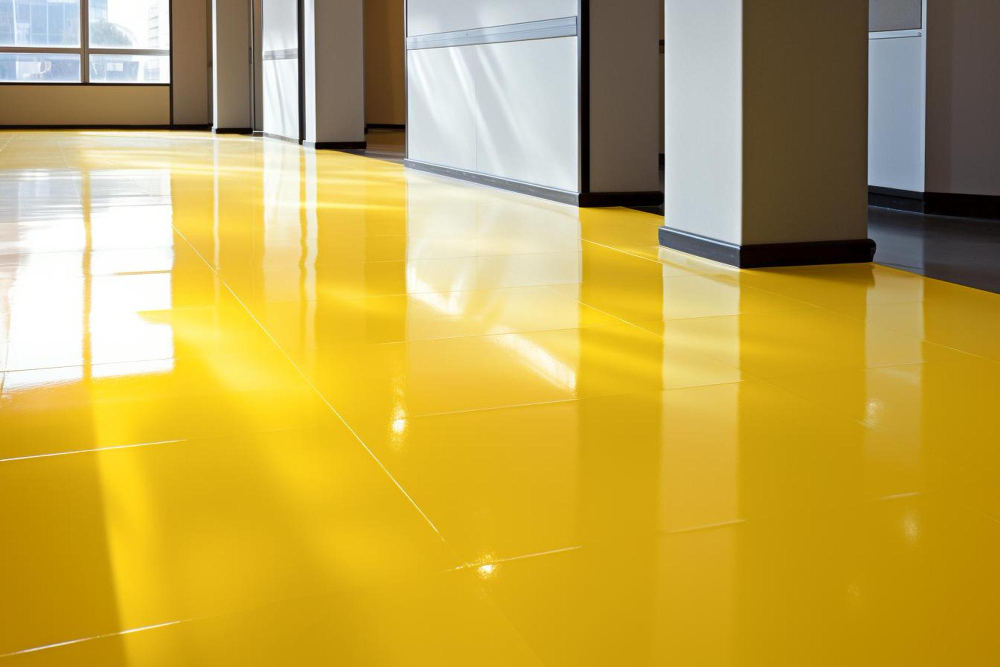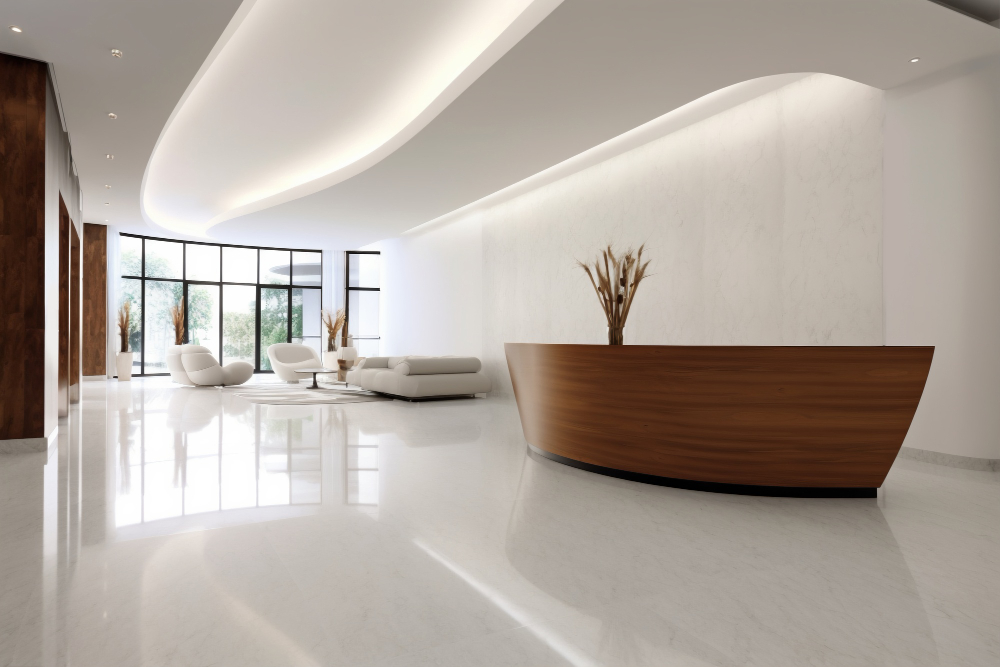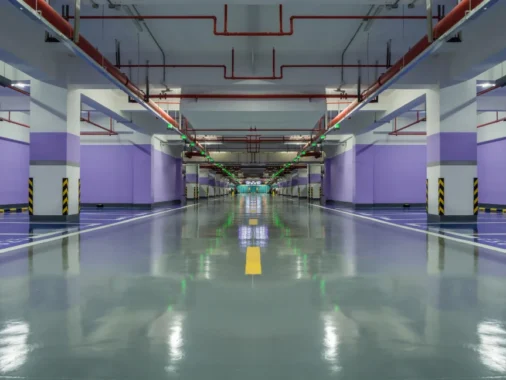Epoxy flooring is a must to make your home floor more attractive in today’s digital age. Epoxy flooring has gained popularity in both residential and commercial settings due to its durability, aesthetic appeal, and versatility. Whether you’re looking to upgrade your garage, basement, or industrial space, epoxy flooring offers a range of benefits that make it an attractive choice.

Understanding what epoxy flooring is, the different types available, and its numerous advantages can help you determine if it’s the right option for your flooring needs. This guide provides a comprehensive overview of epoxy flooring, helping you make an informed decision.
What is Epoxy Flooring?
Epoxy flooring is a type of flooring surface made from multiple layers of epoxy applied to a floor base. Epoxy is a thermosetting polymer that starts as a liquid and cures to form a hard, durable surface.

The process involves mixing resin with a hardening agent, which chemically reacts to form a rigid plastic material that is strong, resistant to degradation, and highly adhesive. When applied properly, epoxy flooring creates a seamless, glossy finish that can withstand heavy loads and high traffic.
Types of Epoxy Flooring
In the following section we have briefly discussed the different types of epoxy flooring:
- Self-Leveling Epoxy:
- Ideal for creating a smooth, level surface over new or existing concrete floors. It is often used in commercial, industrial, and residential applications.
- Epoxy Mortar Floors:
- Composed of 100% solid epoxies and graded sand or quartz sand. These are extremely durable and are used in heavy industrial environments.
- Quartz-Filled Epoxy Floors:
- A combination of high-performance epoxy polymer resin and stained quartz grains. This type is ideal for areas requiring decorative yet slip-resistant flooring, like locker rooms, restrooms, and schools.
- Anti-Static Epoxy Floors (ESD):
- Designed to mitigate static hazards. They are used in sensitive areas such as laboratories, hospitals, and electronics manufacturing facilities.
- Epoxy Flake Floors:
- These contain coloured flake materials that are inserted into the epoxy to create a vibrant, multi-hued look. They provide a decorative appearance and add a subtle texture to prevent slips.
Benefits of Epoxy Flooring
If you are using epoxy flooring for your home, here are some of the benefits:
- Durability:
- Epoxy floors are incredibly durable and can withstand heavy traffic, making them ideal for commercial and industrial use.
- Chemical Resistance:
- Resistant to a wide range of chemicals, making it perfect for garages, warehouses, and industrial environments.
- Aesthetic Appeal:
- Available in various colours and finishes, including high-gloss and matte, providing an attractive and professional look.
- Ease of Maintenance:
- Epoxy floors are easy to clean and maintain. Their seamless nature prevents dirt and bacteria from accumulating in cracks and crevices.
- Safety:
- Epoxy flooring can be made slip-resistant and is also resistant to fire, heat, and impact, enhancing safety in the workplace.
- Cost-Effective:
- Despite the initial installation cost, the long-term durability and minimal maintenance requirements make epoxy flooring a cost-effective choice.
Choosing the Ideal Epoxy Flooring

When you choose epoxy flooring you must follow the following factors:
- Intended Use:
- Determine the primary use of the space. Heavy industrial areas may require more robust options like epoxy mortar, while residential garages might benefit from self-leveling epoxy.
- Aesthetic Preferences:
- Consider the desired look and feel. Epoxy flake floors offer decorative appeal, while quartz-filled epoxy provides a blend of beauty and functionality.
- Environmental Conditions:
- Assess the conditions of the area, including exposure to chemicals, moisture, and temperature variations. Anti-static or chemical-resistant epoxy floors might be necessary for certain environments.
- Budget:
- Evaluate the cost against the benefits. While some types of epoxy flooring may have a higher initial cost, their durability and low maintenance can offer savings over time.
In Conclusion
Epoxy flooring is a versatile and durable option for a wide range of applications, from residential garages to industrial warehouses. Its benefits, including longevity, resistance to chemicals, and low maintenance, make it an attractive choice for many. Hope by reading this post you have learned more about epoxy flooring.
By understanding the different types of epoxy flooring and considering your specific needs, you can select the ideal flooring solution that combines functionality with aesthetic appeal. Whether for home or business, epoxy flooring provides a reliable and stylish foundation that stands the test of time. If you like our post then you can share it with your friends and family.


